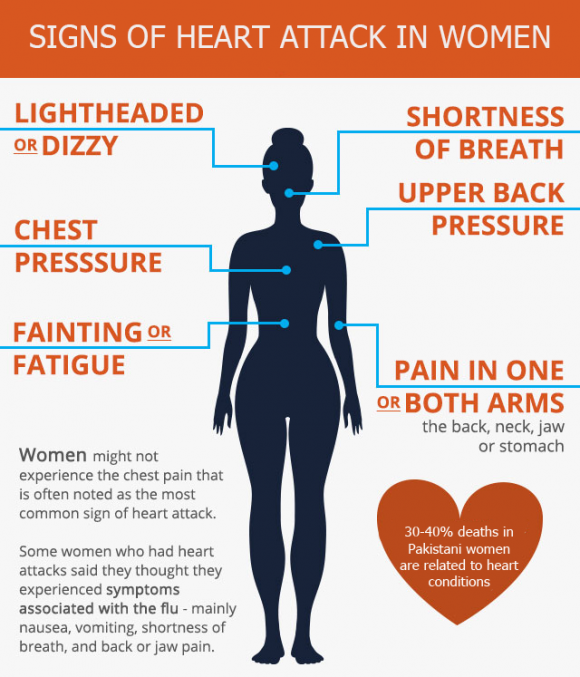
Heart Diseases in Women – Know the Risks
The Pakistani population has one of the highest rates of coronary heart disease in the world, with 30-40% of all deaths being related to cardiovascular conditions. There are many reasons behind these dismal statistics, the most important being a lack of awareness in the adult population. Women are more prone to neglecting their health and ignoring the danger signs as they juggle their work, family, and social pressures.
We all stay updated with our areas of interest, whether it be fashion or political scenarios, but it’s much more important to know about our fluctuating health parameters and how to control them.
The first step towards effective control is to understand your current status and then identify areas which need to be improved through targeted activities.
A quick self-assessment can be performed by answering the following questions:
• Has anyone directly related to you had a heart attack or stroke?
• Have you been diagnosed with any form of heart disease?
• Have you been diagnosed with diabetes?
• Have you ever been told that your blood pressure is high?
• Have you ever been told that your blood cholesterol is high?
• Do you smoke or do you live with someone who smokes?
• Do you get moderate to the vigorous intensity of exercise on a regular basis?
• Are you overweight?
If you answered “Yes” to any of the above questions, you have one (or many) of the risk factors for heart disease.
Being at a higher risk does not mean that a heart attack is inevitable, it only means that you should take more preventive measures and monitor your risk factors regularly.
- Blood tests for glucose and cholesterol should be performed at regular intervals.
- Plus, a routine check of blood pressure and weight is a must.
Use a calendar, whether on your cell phone or on good ol’ paper, to mark your next checkup and maintain a record of your results so that any significant difference can be identified and nipped in the bud.

Women who consider doing their household chores as exercise are just fooling themselves. Exercise for overall cardiovascular health includes at least 30 minutes of moderate-intensity aerobic activity 5 days per week OR at least 25 minutes of vigorous aerobic activity 3 days per week.
Information about heart-healthy recipes, heart-healthy exercise regimes, and other heart-healthy lifestyle changes are easily available. However, often women visit their doctors only after their cardiac health has significantly worsened and they need medication to achieve the required effects.
Most women refuse to see a doctor until they have severe chest pain, which means the irreversible damage has already taken place. Sometimes the initial symptoms are much more subtle — heart disease could be the reason behind your shortness of breath after climbing stairs or your mild chest pain after lifting a heavy suitcase.
Monitor your risk factors before they turn into severe symptoms because by then, it might be too late.

